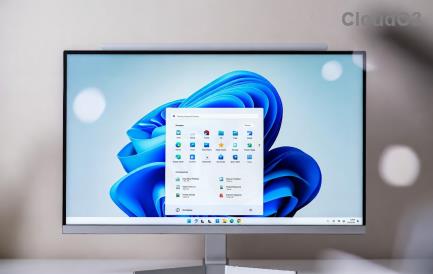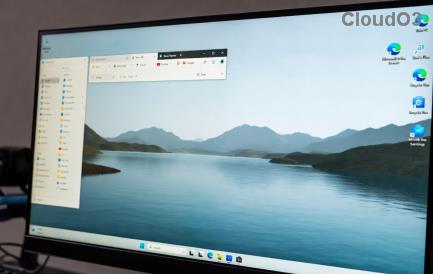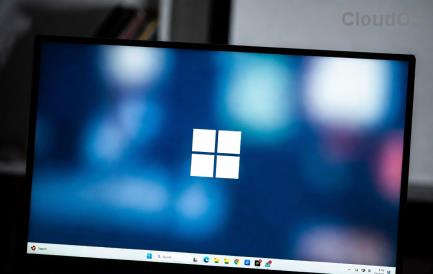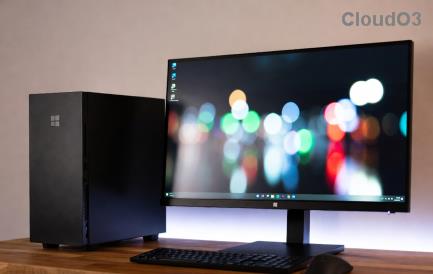Windows è un sistema operativo completo che consente di dettare e gestire le autorizzazioni di accesso in base all'account attualmente attivo. Ciò rende molto più semplice per gli amministratori gestire i PC nella loro organizzazione consentendo loro di fornire autorizzazioni elevate a persone selezionate.
Ma cosa succede se possiedi il tuo PC? Come gestisci gli account locali? E se non hai un account amministratore? Sei bloccato per sempre? Se hai avuto queste domande o hai riscontrato di recente un errore in cui hai richiesto l'autorizzazione dell'amministratore, abbiamo la guida perfetta per te.
Ecco tutto ciò che devi sapere sugli account amministratore in Windows 11.
Una nota sulla compatibilità con Windows 10: le guide in questa pagina sono state compilate utilizzando Windows 11, quindi l'interfaccia utente utilizzata negli screenshot è di Windows 11. Ma queste guide funzionano totalmente anche su Windows 10. Quindi, sentiti libero di utilizzare le guide su Windows 11 e su PC Windows 10.
Correlati: Come cercare in Windows 11
Contenuti
Che cos'è un account amministratore in Windows 11?
Un account amministratore è un account in primo piano in Microsoft Windows con i privilegi più elevati. Ciò ti consente come amministratore di gestire il tuo PC come preferisci. Puoi apportare modifiche ai file di sistema, installare programmi con privilegi elevati, modificare l'installazione di Windows, configurare l'automazione personalizzata e molto altro. L'autorizzazione per eseguire tali attività non è disponibile per gli utenti standard o ospiti. Inoltre, in qualità di amministratore, puoi gestire le funzionalità di Windows e stabilire quali sono disponibili e accessibili ai tuoi utenti.
Perché hai bisogno di un account amministratore?
Un account amministratore è un account con i privilegi più elevati in Windows. Ciò significa che puoi apportare modifiche a livello di sistema al tuo sistema operativo utilizzando un account amministratore senza alcuna restrizione. Ecco alcuni dei motivi più comuni per cui potresti aver bisogno di un account amministratore sul tuo PC.
- Per apportare modifiche a livello di sistema al tuo sistema
- Per modificare/modificare o riparare i file di sistema
- Per eseguire comandi e script a livello di amministratore
- Per abilitare o disabilitare le funzionalità di Windows
- Per installare programmi e modifiche a livello di sistema
- Per modificare o reinstallare i driver
- Per accedere alle impostazioni di personalizzazione all'interno di Windows
- Per reimpostare o modificare le password dell'account locale
e molto di più. Potrebbero esserci molte ragioni per cui hai bisogno di un account amministratore in Windows 11, ma sapevi che ci sono due tipi di account amministratore all'interno di Windows. Beh, non esattamente, ma ecco tutto quello che devi sapere su di loro.
Correlati: Come disabilitare i suoni di avviso di Windows 11
Accedi come amministratore: cose che devi sapere
Windows per impostazione predefinita viene fornito con un account amministratore integrato anche se non è disponibile nella schermata di blocco. Questo account predefinito viene creato al momento dell'installazione di Windows per approvare tutte le modifiche al sistema apportate sul PC durante la configurazione di Windows.
Inoltre, Windows ti consente anche di configurare un account amministratore aggiuntivo dal tuo account locale se disponi delle autorizzazioni necessarie. Puoi anche convertire il tuo account corrente in un account amministratore se stai utilizzando un account standard in Windows 11.
La configurazione di ciascuno di questi account ha requisiti diversi e, a seconda della configurazione corrente, puoi optare per una delle configurazioni. Ma nel caso in cui tu stia tentando di recuperare la password del tuo account locale, l'utilizzo dell'account amministratore predefinito è la soluzione migliore poiché in questo caso non potresti superare la schermata di blocco.
Inoltre, ecco alcune cose comuni che dovresti tenere a mente prima di procedere con le guide di seguito.
- L'amministratore predefinito non ha una password di accesso a meno che non sia stato personalizzato dall'amministratore
- Se la tua unità è stata rilasciata dalla tua organizzazione o istituto di istruzione, i metodi di seguito probabilmente non funzioneranno per te. L'account amministratore predefinito verrà bloccato dalla tua organizzazione e il tuo account attuale non avrà i privilegi necessari per continuare con altri metodi in questa guida. Molto probabilmente dovrai metterti in contatto con il tuo amministratore se possiedi una tale unità.
- Se condividi il dispositivo con altri utenti, dovresti disabilitare l'account amministratore dopo aver apportato le modifiche necessarie al tuo sistema per evitare qualsiasi accesso non autorizzato alle informazioni sensibili. Si consiglia inoltre di impostare una password per l'account amministratore predefinito in questi casi.
- Alcuni metodi seguenti richiedono che sul sistema sia installato Windows 11 Pro o versioni successive. Se stai usando Windows 11 Home Edition, le tue opzioni saranno limitate.
Differenza tra l'account amministratore predefinito e la concessione dell'accesso amministratore a un account utente
L'account amministratore predefinito è un account separato presente in ogni installazione di Windows, indipendentemente dal dispositivo o dalla versione di Windows. Un account convertito, d'altra parte, è un account standard o guest sul tuo PC che è stato elevato ai privilegi di amministratore.
Una volta elevato, il tuo account apparterrà al gruppo Administrator e disporrai di tutte le autorizzazioni di amministratore necessarie per apportare modifiche a livello di sistema sul tuo PC. L'amministratore predefinito viene utilizzato principalmente quando si tenta di recuperare le password degli account perse per gli account utente locali sul PC.
La conversione di un account, d'altra parte, è un semplice processo di elevazione delle autorizzazioni del tuo account corrente che ti consentirà di operare come amministratore del dispositivo corrente. L'amministratore predefinito può essere disabilitato sul tuo sistema con un semplice comando, mentre il tuo account locale dovrà essere convertito di nuovo se desideri annullare le modifiche. Utilizza uno dei metodi seguenti che meglio si adatta alle tue esigenze attuali.
Correlati: Come disabilitare la tastiera su Windows 11
Come accedere come amministratore in Windows 11
Puoi accedere come amministratore in Windows 11 utilizzando i vari metodi che abbiamo affrontato sopra. Puoi abilitare l'account amministratore predefinito se desideri apportare modifiche temporanee al tuo PC o recuperare una password persa. Puoi anche impostare un nuovo account amministratore per un nuovo utente nel caso in cui desideri condividere il tuo dispositivo con qualcuno. Infine, puoi convertire il tuo attuale account locale in un account amministratore se stai cercando di ottenere i privilegi di amministratore sul dispositivo attuale. Segui uno dei metodi seguenti che meglio si adatta alle tue esigenze e ai tuoi requisiti attuali.
Metodo n. 01: utilizzare l'account amministratore predefinito
Puoi utilizzare l'account amministratore predefinito sul tuo PC Windows 11 per apportare le modifiche necessarie utilizzando la guida di seguito. Una volta apportate le modifiche è possibile disabilitare l'account utilizzando la guida successiva. Iniziamo.
1.1 Abilita l'account amministratore predefinito
Per prima cosa dovremo abilitare/visualizzare l'account amministratore sul tuo PC. Questo può essere fatto usando vari metodi. Se riesci a superare la schermata di blocco, puoi utilizzare uno di questi metodi. Tuttavia, se non riesci a superare la schermata di blocco, dovrai accedere al CMD dalla schermata di blocco e utilizzare la guida di seguito. In questi casi, puoi utilizzare la guida in basso per attivare CMD direttamente dalla schermata principale. Iniziamo.
1.1.1 Utilizzo di CMD
Avvia CMD sul tuo sistema e digita il comando seguente. Una volta fatto, premi Invio sulla tastiera per eseguirlo.
net user administrator /active:yes

Il comando dovrebbe ora essere completato con successo.

Premi il tasto Windows sulla tastiera e fai clic sul tuo nome utente nell'angolo in basso a sinistra. Un account amministratore dovrebbe ora essere visibile in questa sezione.

Ciò significa che il processo ha avuto successo. Ora puoi uscire dal tuo account e accedere all'account amministratore. L'account amministratore predefinito non ha una password e verrai accolto dall'OOBE una volta effettuato l'accesso all'account. Ora puoi utilizzare le guide successive per reimpostare la password di Windows, se necessario.
1.1.2 Utilizzo degli strumenti di amministrazione
Premi Windows + Rsulla tastiera per avviare la finestra di dialogo Esegui. Digita il seguente termine una volta avviato e premi Invio sulla tastiera.
lusrmgr.msc

Il gestore dei gruppi locali verrà ora avviato sul tuo PC. Inizia selezionando "Utenti" alla tua sinistra.
Fai clic su Amministratore alla tua destra. Ora, fai clic su Altre azioni e poi su Proprietà .

Verrà ora visualizzata una nuova finestra sullo schermo. Deseleziona l'opzione "Account disabilitato".

Fare clic su "Applica" e quindi su "OK".

Chiudi il gestore dei gruppi locali e attiva il menu Start. Ora fai clic sul tuo nome utente in basso a sinistra e in questa sezione dovrebbe essere disponibile un nuovo account "Amministratore". Ora puoi uscire dal tuo account attuale e accedere al nuovo account amministratore. L'account non avrà una password e dovresti essere in grado di accedervi facilmente facendo semplicemente clic su "Accedi".
1.1.3 Utilizzo dell'editor del registro
Il metodo dell'editor del registro è applicabile solo agli utenti con Windows 11 Pro o versioni successive installato sui loro sistemi. Questo perché il percorso del registro a cui dobbiamo accedere per questo metodo è disponibile solo per gli utenti di Windows 11 Pro o versioni successive. Se sei un utente di Windows 11 Home, puoi invece utilizzare il metodo CMD sopra elencato.
Premi Windows + Rsulla tastiera e digita il termine seguente. Premi Invio sulla tastiera una volta che hai finito.
regedit

Ora vai al seguente percorso. Puoi anche copiare e incollare lo stesso nella barra degli indirizzi in alto.
Computer\HKEY_LOCAL_MACHINE\SOFTWARE\Microsoft\Windows NT\CurrentVersion\Winlogon\SpecialAccounts\UserList

Con UserList selezionato alla tua sinistra, fai clic con il pulsante destro del mouse su un'area vuota alla tua destra e seleziona "Nuovo".
Fare clic su "Valore DWORD (32 bit)".
Denominare il valore come "Amministratore" e premere Invio sulla tastiera.
Once the value is added, close the Registry Editor and restart your PC for good measure. An administrator account should now be available in the bottom left corner of your screen when at the lock screen.
1.1.4 Using GPO
If you are using an enterprise machine then you can also use the Group Policy Editor to enable the default administrator account on your PC. However, this option will be unavailable to users with Windows 11 Home edition. Follow the guide below to get you started.
Press Windows + R, enter the following term and press Enter on your keyboard to open the Group Policy Editor on your PC.
gpedit.msc
Navigate to the following directory using the left sidebar.
Computer Configuration\Windows Settings\Security Settings\Local Policies\Security Options\

Now double click on the following value on your right: Accounts: Administrator account status

Select ‘Enabled’.

Click on ‘Apply’ and then on ‘OK’.

Close the GPO window now and press the Windows key on your keyboard to open the Start menu. Now click on your username in the bottom left corner of your screen and a new Administrator account should now be available to you.
1.2 Disable the default administrator account
Now that you are done with your administrative tasks, it is recommended that you disable your administrator account to prevent unauthorized access to your system. Use one of the methods below that best suits your current needs and requirements. Let’s get started.
1.2.1 Using CMD
Activate CMD on your PC depending on your current setup and type in the following command. Press Enter on your keyboard to execute it.
net user administrator /active:no

And that’s it! The default administrator account should now be disabled on your PC.
1.2.2 Using Admin Tools
Press Windows + R and enter the following term in the Run dialog box. Press Enter on your keyboard once you are done.
lusrmgr.msc

Select ‘Users’ from the left sidebar and click on ‘Administrator’ on your right.
Select the checkbox for ‘Account is disabled’ option.

Click Apply and then OK.

Close the admin tools window and the default administrator account should now be disabled on your PC.
1.2.3 Using Registry Editor
Press Windows + R, type in the following, and press Enter on your keyboard to open the Registry Editor on your PC.
regedit

Once the registry editor opens, navigate to the path given below.
Computer\HKEY_LOCAL_MACHINE\SOFTWARE\Microsoft\Windows NT\CurrentVersion\Winlogon\SpecialAccounts\UserList

Click on ‘Administrator’ on your right and hit Del on your keyboard.
Confirm your choice by clicking on ‘Yes’.
Restart your PC and the default admin account should no longer be available on your lock screen.
1.2.4 Using GPO
Press Windows + R and type in the following. Press Enter on your keyboard once you are done.
gpedit.msc
Now navigate to the following path.
Computer Configuration\Windows Settings\Security Settings\Local Policies\Security Options\

Now double click on the following value on your right: Accounts: Administrator account status

Select ‘Disabled’.

Click on ‘Apply’ and then on ‘OK’.

Close the GPO window.
The default administrator account will now be disabled on your PC via the Group Policy Editor in Windows 11.
1.3 Login as admin using command prompt (can’t get past the lock screen issue)
If you are locked out of Windows and would like to access the administrator account to reset your password then you will need to launch CMD from your lock screen first. You will need a recovery environment to proceed with this guide.
You will need to first access CMD using Windows installation media (a Windows bootable USB) for this guide and then follow the steps below. If using an installation media press Shift + F10 during the setup to launch CMD anywhere.
Follow the guide below to get you started once you have launched CMD as given above.
Once the command prompt launches, enter the following command and press Enter on your keyboard.
cd windows

You will now be taken to your default boot drive in CMD. Enter the following command and execute it by press Enter on your keyboard.
cd system32

You will now be in the System32 directory. Execute the command below to create a backup of utilman.exe.
copy utilman.exe utilman.exe.back

Execute the command below within CMD now.
copy cmd.exe cmd1.exe

Now let’s delete the default utilman.exe.
del utilman.exe

We will now rename CMD so that it can be accessed as utilman.exe.
rename cmd.exe utilman.exe

Once all the commands are executed successfully, close the command prompt by typing in the following command.
exit

Restart your PC and proceed to the Windows lock screen as you normally would. Click on the accessibility icon in the bottom right corner and you should now be able to access CMD on your lock screen. Follow the guide above to enable administrator account on your system. Once enabled, you can use the guide below to reset a local account’s password. Once you have reset your password it is highly recommended that you revert the changes we made to cmd.exe and utilman.exe earlier. Use the steps below to revert your changes.
Press Windows + S on your keyboard and search for CMD. Click on ‘Run as administrator’ once it shows up in your search results.

Now enter the following commands one by one and execute them to revert your changes. Make sure to execute each command one after the other without changing their order.


rename utilman.exe.back utilman.exe

CMD functionality should now be restored within Windows 11. You can check for the same by pressing Windows + R on your keyboard, typing in CMD, and hitting Enter on your keyboard. If CMD launches on your system then all the necessary changes have been reverted successfully.

However, if CMD does not launch, make sure that you executed each command successfully on your system by re-verifying each one in the list above.
And that’s it! You should now be able to access CMD from your lock screen.
1.4 Reset password for a local account
You can now reset your local account’s password with the default administrator account we just enabled. Follow the steps below to get you started.
Log in to the Windows administrator account and then press Windows + S on your keyboard. Search for Control Panel and click and launch the app once it shows up in your search results.

Click on ‘User Accounts’.

Click on ‘User Accounts’ again.

Click on ‘Manage another account’.

Click and select the account for which you wish to change the password.

Now click on ‘Change the password’.

Type in your new password and confirm the same in the respective text boxes

Set a password hint if needed.

Click on ‘Change password’ once you are done.

And that’s it! The password for the selected account should now be changed. You can now visit the lock screen and log into your local account using your new password. We recommend you revert any changes made at this point to maintain your security and privacy. You should revert any CMD changes made as well as disable the default administrator account on your system using the guides above.
Method #02: Create a new administrator account in Windows 11
If you wish to create a new administrator account in Windows 11, then you can follow the steps below. Please keep in mind that you will need administrator privileges to create a new administrator user account on your device. Follow the guide below to get you started.
Press Windows + i on your keyboard and select ‘Accounts’ from the left sidebar.

Click on ‘Family & other users’.

Click on ‘Add account’.

At this point, you can enter the Microsoft Account details of the new user and follow the on-screen steps to set up a new account. However, if you are looking to create a new local account then you can continue with the steps below.
Click on ‘I don’t have this person’s sign-in information’.

Click on ‘Add a user without a Microsoft account’.

Enter the name of the new user.

Now set a password and confirm the same.

Click on ‘Next’ once you are done.
 \
\
A new account will now be added to your PC. However, the newly added account is a standard account. Let’s convert it into an administrator account. Press Windows + S on your keyboard and search for Control Panel. Click and launch the app from your search results.

Click on ‘User Accounts’.

Click on ‘User Accounts’ again.

Click on ‘Manage another account’.

Now click and select the new account you just created.

Click on ‘Change the account type’.

Click and select ‘Administrator’.

Finally, click on ‘Change account type’.

And that’s it! You will now have created a new local administrator account on your device.
Method #03: Change a standard account to an administrator account
If you have a standard account then you can simply switch to an administrator account. If using the Windows Home edition then you can either use the Control Panel method or the ‘netplwiz’ method. On the other hand, Windows Pro and higher users can use either of the methods listed below. Let’s get started.
Note: If you are logged in as a standard user and would like to convert the same account to an administrator account then we recommend you use the netplwiz guide in the methods below.
3.1 Using Control Panel (Windows home)
Press Windows + S on your keyboard, search for Control Panel and launch the app once it shows up in your search results.

Click on ‘User Accounts’.

Click on ‘User Accounts’ again.

If you wish to change your own account’s type then click on ‘Change your account type’. If you wish to convert another local account then select ‘Manage another account’ and select the concerned account. Once selected, click on ‘Change account type’.

Select ‘Administrator’.

Click on ‘Change account type’.

And that’s it, the concerned account should now be an administrator account on your system.
3.2 Using netplwiz
You can also use netplwiz to your advantage and convert user accounts on your PC. Follow the guide below to get you started.
Press Windows + R on your keyboard to launch the run dialog box. Once launched, type in the following and press Enter on your keyboard.
netplwiz

Check the box for ‘Users must enter a user name and password to use this computer’ at the top.

Now click and select the user account you wish to convert from the list below.

Click on ‘Properties’.

Switch to the ‘Group Membership’ tab at the top.

Click and select ‘Administrator’.

Click on ‘Ok’ twice, once you are done.

If you converted the current local account that you are signed in with then you will be prompted to re-login to the account for the changes to take effect. Click on ‘Yes’ to confirm your choice.
You will now be taken to the lock screen. Login to the concerned account and you should now have administrator privileges within it.
3.3 Using Local groups manager (Windows Pro and higher)
Press Windows + R on your keyboard, type in the following, and press Enter on your keyboard.
lusrmgr.msc
The local groups manager should now launch on your PC. Click and open ‘Users’ on your left.
Now select the desired User account that you wish to convert from your right and double click on it.
Switch to the ‘Member of’ tab and select the ‘Administrator’ group.
Click on ‘Ok’ once you are done.
And that’s it! The selected account will now have elevated administrator privileges within Windows.
Can you set or reset a password when logged in as an administrator?
Yes, you can easily reset your password as an administrator in Windows 11. This can be done in multiple ways and you can reset the password for a standard account or an administrator account using this method. This can be quite useful if you have forgotten your password and would like to get back into your system without losing your data.
However, you should keep in mind that this can be used by anyone to change your password and get access to your system. Hence, it is recommended that you set a secure password for your default account whenever possible.
For now, you can use the guide below to reset a password in Windows 11 when logged in as an administrator.
How to reset the password once logged in as an administrator
Resetting your password is quite easy when you are logged in to Windows 11 as an administrator. The best way to do this is by using either the Control Panel or CMD. Use one of the guides below that best fits your current needs and requirements. Follow any one of the guides below to get you started.
1. Using Control Panel
Press Windows + S and search for Control Panel. Click and launch the app from your search results.

Click on ‘User Accounts’.

Now click on ‘User Accounts’ again.

Click on ‘Manage another account’.

Now click and select your local account for which you wish to reset your password.

Click on ‘Change the password’.

Add a new password for your local account and confirm the same in their respective text boxes.

Now add a password hint if required.

Click on ‘Change password’ once done.

And that’s it! The password for the selected account should now be changed based on your preferences.
2. Using CMD
You can also reset a local account’s password using CMD. Follow the guide below to get you started.
Press Windows + S on your keyboard and search for CMD. Click on ‘Run as administrator’ once the app shows up in your search result.
Type in the following and press Enter on your keyboard.
net user

You will get a list of all the accounts currently available on your PC. Make a note of the desired account’s username and then type in the command below. Replace ‘NAME’ with the name you noted down earlier and replace ‘PASSWORD’ with your new password. Once done, press Enter on your keyboard.
net user NAME PASSWORD

And that’s it! Once the command is executed, the password for the desired account should be automatically changed on your PC.
How to add a password for the administrator account
If you are looking to secure your PC further then it is recommended that you add a password for the default administrator account. This will ensure that no one aware of this trick can access your Windows account without your authorization. We can add a password for your default admin account in several ways but we recommend you do so either via the advanced menu or via the CMD method. Follow any one of the guides below to get you started.
1. Using Ctrl + Alt + Del
Log in to the default administrator account and press Ctrl + Alt + Del on your keyboard.
Now click and select ‘Change password’.
Enter a new password and confirm the same in their respective fields.
Add a password hint or security question depending on your preferences.
Click on ‘Ok’ once you are done.
And that’s it! Your default administrator account’s password should now be changed on your PC.
2. Using CMD
Log in to the default administrator account and press Windows + S on your keyboard. Search for CMD and click on ‘Run as administrator’ once the app shows up in your search results.

Now enter the following command. Replace ‘PASSWORD’ with a password of your desired choice.
net user Administrator PASSWORD

And that’s it! The new password should now be set for your default administrator account.
Should you keep the administrator account enabled?
No, it is not recommended to keep your default/super administrator account enabled. This account has higher and more elevated privileges when compared to a normal administrator account in Windows. This account is used by Windows to perform system-level tasks in the background as well hence it could cause several privacy issues on your system.
In case somebody can access this account, they would have access to your entire data and hardware. The user could then proceed to take control of your entire system or simply infect it with malware, adware, and in the worst cases, ransomware.
We hope you were able to easily log in as an administrator in Windows 11 using the guide above. If you face any issues or have any more questions for us, feel free to reach out to us using the comments section below.
Related:
















































 \
\


























